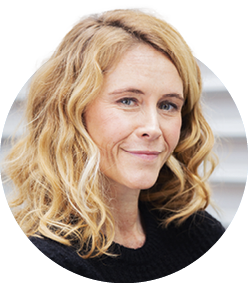News media
Independent
JOURNALISM
The editorial independence of
DPG Media’s news outlets is a given, but it’s also crucial to what they do. How does that work in practice?
Keeping journalism and commercial interests separate
Wherever there’s a risk of conflict between journalistic integrity and commercial interests, the publisher and editorial team work according to clear agreements. For example, there should always be a clear distinction between commercial and editorial content.
Read more
Keeping journalism and commercial interests separate
Wherever there’s a risk of conflict between journalistic integrity and commercial interests, the publisher and editorial team work according to clear agreements. For example, there should always be a clear distinction between commercial and editorial content, and readers should never be confused when they’re faced with ‘branded content’ – we make it clear to them that they’re reading an advertisement. The editor-in-chief decides whether there’s enough of a visual difference between ads and editorial pieces. Editorial teams are always free to write critically about the products and services of other DPG Media units, without any restrictions. And they often do.
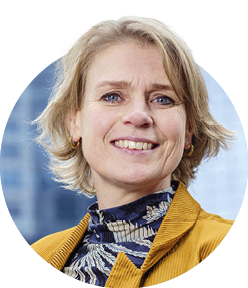
Rennie Rijpma (52),
EDITOR-IN-CHIEF OF AD
“Angela de Jong is celebrated and feared for her TV columns. Her great strength lies in the fact that she states her opinion plainly, which she will always be able to do here, no matter who or what she writes about. The same is true for our other journalists. Editorial independence is our greatest asset.”
Independent newsrooms
The success of our news media depends on two key factors: journalistic quality and public confidence in the independence of our reporting. This is something that permeates everything we do at DPG Media. It has always been a given that newsrooms have their own identity and cover the news independently. That’s how they contribute to journalistic pluralism, one of the pillars of a democratic society.
Read more
Independent newsrooms
The success of our news media depends on two key factors: journalistic quality and public confidence in the independence of our reporting. This is something that permeates everything we do at DPG Media. It has always been a given that newsrooms have their own identity and cover the news independently. That’s how they contribute to journalistic pluralism, one of the pillars of a democratic society.
This independence is also crucial from an operational point of view: because editors have to earn the public’s trust, they have the best sense of what concerns readers, and of what connects them to the publications. So while the editorial team oversees the content, subscriptions and ad sales are handled by other departments.
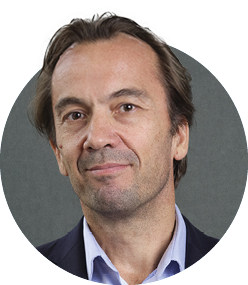
Pieter Klok (51),
EDITOR-IN-CHIEF OF DE VOLKSKRANT
“The discussions I have with DPG Media are only about publishing policy, budget, marketing and ICT support – never about content. Our editors and readers wouldn’t accept that. It would also violate our editorial statutes, which have the same status at de Volkskrant as the |stone tablets Moses brought down from Mount Sinai. The editors have unlimited freedom in their writing.”
Editorial statutes and editorial boards
Almost all of DPG Media’s news outlets have editorial statutes guaranteeing the independence of their newsroom. The publisher recognises these statutes and has made them legally binding in its own corporate charter.
Read more
Editorial statutes and editorial boards
Almost all of DPG Media’s news outlets have editorial statutes guaranteeing the independence of their newsroom. The publisher recognises these statutes and has made them legally binding in its own corporate charter.
Course-defining decisions – about the appointment of a new editor-in-chief, for example – are taken in mutual consultation between the editors and the publisher (and the foundation, if the title has one). The statutes also define the role of the editorial board and the purpose of editorial meetings. The board is elected by the editors and regularly consults with the editor-in-chief on the publication’s editorial direction. It can also discuss issues directly with the publisher.

Frank van den Heuvel (53),
SECRETARY OF THE EDITORIAL BOARD OF EINDHOVENS DAGBLAD
“The editorial team at ED takes the responsibilities and independent role of the editorial board seriously. The editor-in-chief keeps the board informed of important developments, and we can ask information at any time. We also give advice where necessary, based on the statutes, which guarantee our advisory role. The board explains its recommendations in plenary editorial meetings.”
The role of foundations
Het Laatste Nieuws, de Volkskrant, Trouw, Het Parool and Berlingske each have an independent foundation set up to preserve their unique identity, together with their editors and the publisher. These foundations play an important role in the appointment and dismissal of the editor-in-chief. The Dutch foundations are also involved in DPG Media’s activities as shareholders.
Read more
The role of foundations
Het Laatste Nieuws, de Volkskrant, Trouw, Het Parool and Berlingske each have an independent foundation set up to preserve their unique identity, together with their editors and the publisher. These foundations play an important role in the appointment and dismissal of the editor-in-chief. The Dutch foundations are also involved in DPG Media’s activities as shareholders.
The independent Media & Democracy Foundation holds a 14.3% stake in DPG Media Nederland. This foundation has the right to nominate a member of the Supervisory Board. In Denmark, the independent Berlingske Fond oversees the activities of Berlingske Media. DPG Media is accountable to all these foundations.
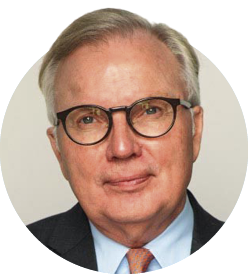
Fritz H. Schur (72),
CHAIR OF THE BERLINGSKE FOND
“The Berlingske Fond is independent of the newspapers and their business activities. The foundation was set up to keep the newsrooms and editorial direction independent of commercial activities, and to ensure that the conservative editorial direction established in 1949 is maintained. Editorial independence from commercial interests and adherence to the editorial direction are discussed at every board meeting. I’m happy to note that this has always been the case since the acquisition by DPG Media.”
Insights from data and AI
Editorial teams have an increasing number of data tools at their disposal to analyse the impact of their publications. This allows them to expand their audience and increase reader loyalty.
Read more
Insights from data and AI
Editorial teams have an increasing number of data tools at their disposal to analyse the impact of their publications. This allows them to expand their audience and increase reader loyalty.
Data is only a tool, though – journalistic considerations always come first. The first principle of DPG Media’s new Responsible Data Use Charter is that reader data should serve the process rather than define it. Nor should a journalist’s performance be judged based on data. The aim is to enrich journalistic discussions and make better decisions about the angle, presentation and timing of our stories.
As a company, we have also drafted general guidelines on the use of artificial intelligence, and some of our titles have a more comprehensive individual charter. AI can be a helpful tool, but DPG Media and its newsrooms are using it with caution. In the end, decisions will always have to be made by a human being, and it’s vital that we remain transparent to our readers.
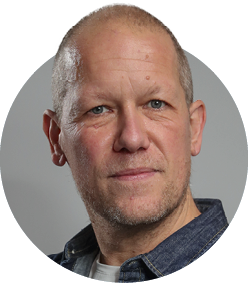
Dimitri Antonissen (49),
EDITOR-IN-CHIEF OF HET LAATSTE NIEUWS
“Smart data analysis is like an indirect form of reader feedback. At what point do people stop reading an article? What other topics might someone be interested in? But data insights must always be used alongside your gut instinct as a journalist and the DNA of your publication That’s also our approach to AI – technology isn’t replacing talented journalists, but supporting them. If you’re a journalist who wants to have a wild brainstorming session to come up with a good title, AI can often make useful suggestions.”
Sharing articles
Every day, DPG Media’s newsrooms produce an average of 1,400 articles, some of which also appear in other publications. This allows smaller titles to focus on what sets them apart.
Read more
